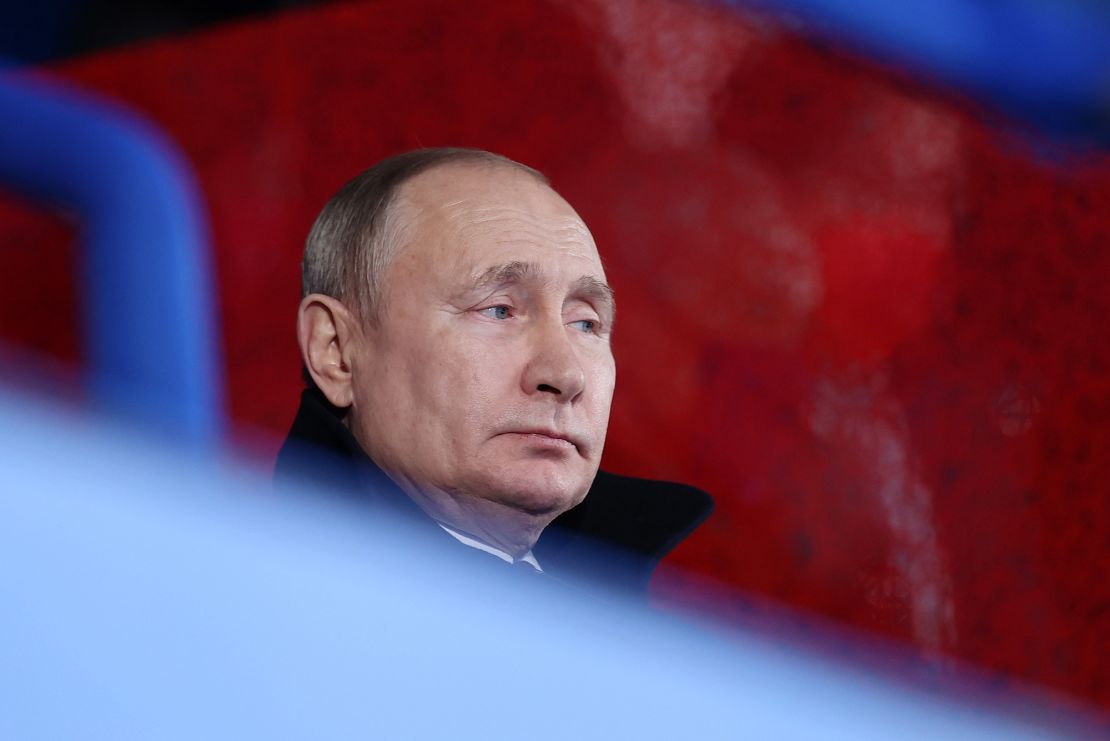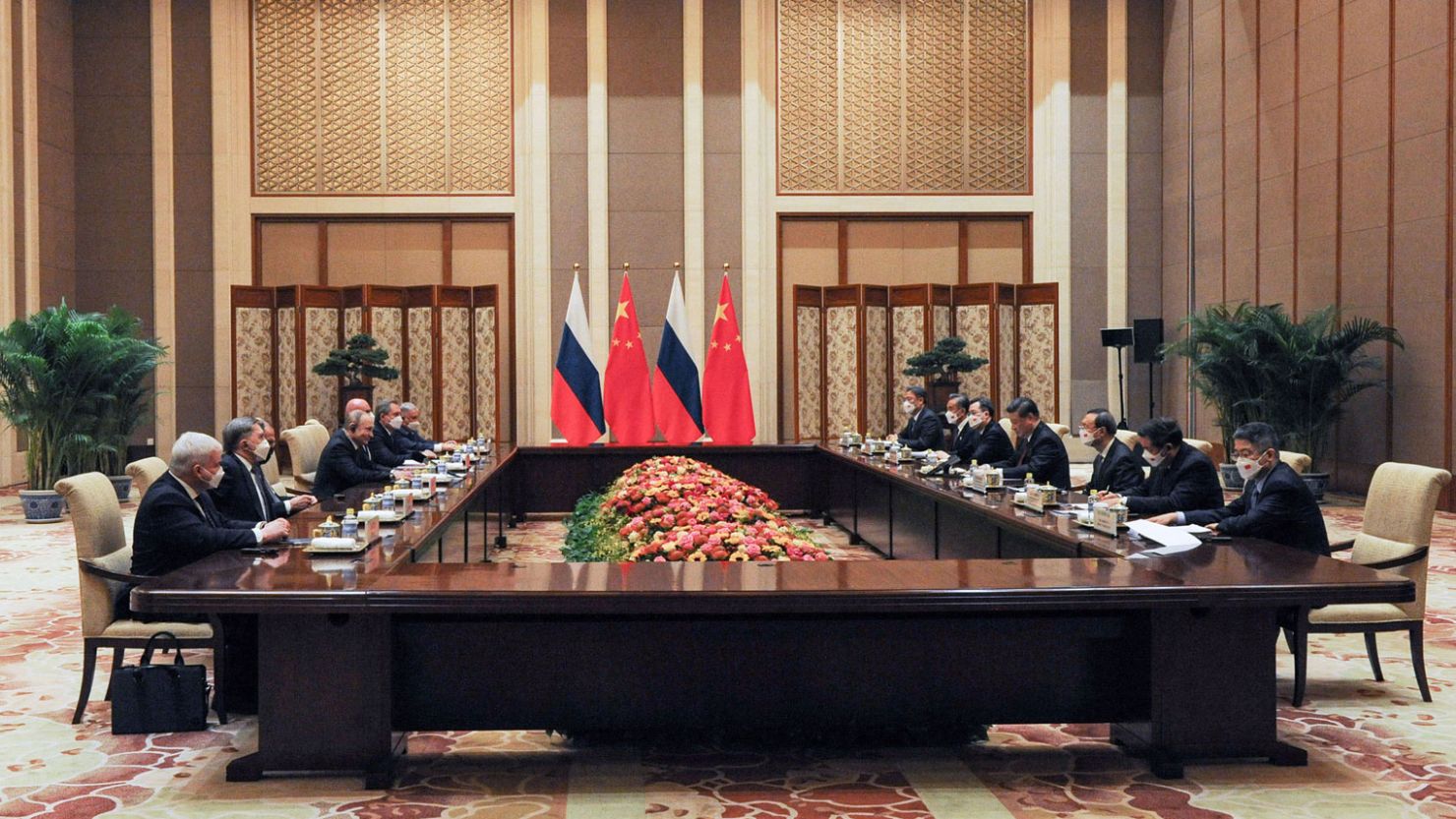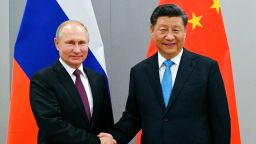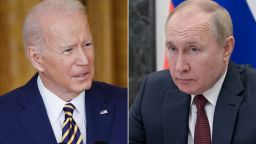Russian President Vladimir Putin and Chinese President Xi Jinping issued a call for NATO to halt further expansion during a meeting on the sidelines of the Beijing Olympics on Friday.
The two leaders’ summit, held on the day of the Opening Ceremony for the Winter Olympics in China’s capital, marked a further step in what has become an increasingly close partnership between Beijing and Moscow, as relations with the West deteriorate for both.
The massing of Russian troops near the border with Ukraine has fueled fears of an imminent invasion and prompted warnings from NATO and Western powers that any Russian aggression would result in serious consequences.
A readout from the Chinese Ministry of Foreign Affairs (MOFA) said the two leaders “had an in-depth and thorough exchange of views on China-Russia relations and a series of major issues concerning international strategic security and stability.”
China has already shown sympathy with Moscow’s message to NATO – which calls for security guarantees to limit the organization’s footprint along Russia’s border.

Putin, who was pictured at the Opening Ceremony, is among a small group of world leaders to attend the Games, with many Western governments, including the United States, Britain and Australia, having declared a diplomatic boycott over China’s human rights record. Other leaders have turned down invitations citing Beijing’s stringent Covid-19 controls.
Friday’s summit was the first in-person meeting between Xi and Putin in more than two years, adding to its significance.
According to an English-language version of the joint statement released by the Kremlin, the two countries “believe that certain States, military and political alliances and coalitions seek to obtain, directly or indirectly, unilateral military advantages to the detriment of the security of others.”
Russia and China also “oppose further enlargement of NATO and call on the North Atlantic Alliance to abandon its ideologized cold war approaches, to respect the sovereignty, security and interests of other countries, the diversity of their civilizational, cultural and historical backgrounds, and to exercise a fair and objective attitude towards the peaceful development of other States,” the statement said.
MOFA described the meeting as taking place in a “warm and friendly atmosphere” and said Xi was ready to work with Putin to “transform the high-level mutual trust between the two countries into outcomes of cooperation across the board.”
“Xi stressed that in the face of profound and complex changes in the international situation, China and Russia are committed to deepening back-to-back strategic coordination and upholding international fairness and justice side by side,” the MOFA readout said. “This is a strategic choice that will have a far-reaching impact on both China and Russia and the world at large.”
Kremlin spokesman Dmitry Peskov similarly described the summit as “a very warm, constructive meeting of partners and allies,” in a conference call with reporters. “At the same time, [it was] very substantive,” he said.
According to Peskov, Putin and Xi mainly discussed bilateral relations and trade partnership, but topics on the international agenda were also raised.
Following the expanded talks, the two leaders headed to a working one-on-one lunch to “dwell in detail on international issues, security guarantees, regional problems, etc.,” Peskov added.
On Monday, China was the only member of the United Nations Security Council to vote alongside Russia to dismiss a council meeting called by the US to discuss Russia’s military build-up at the Ukrainian border – a call that Russia said amounted to the US “whipping up hysteria.”
On the eve of his meeting with Xi, Putin released a letter in China’s state media in which he praised the “new era” of relations between China and Russia. He also pointed to the growing economic and energy links between the neighboring countries.
In a sign of those deepening ties, Russian state-backed oil company Rosneft announced Friday that it would provide 100 million tons of oil to China over the next decade.
Rosneft, Russia’s biggest oil producer, said it had inked the deal with the China National Petroleum Corporation and that the supplies would be sent through Kazakhstan.
“Energy cooperation of Rosneft with Chinese partners is integral,” Rosneft said in a press release. The producer said it was the biggest oil exporter to China, supplying 7% of its annual demand.
The companies also signed a memorandum of cooperation to build up their low carbon capabilities, including reducing greenhouse gas emissions and developing carbon capture technologies.
Meanwhile, in Europe, there are fears that should the current Russia-Ukraine crisis escalate into military conflict, Putin could opt to leverage his country’s control of natural gas supplies to increase pressure on the continent.
Russia provides around 30% of the European Union’s natural gas, with supplies from the country playing a vital role in power generation and home heating across central and eastern Europe.
CNN’s Anna Chernova reported from Moscow. CNN’s Simone McCarthy, Anna Cooban and Nathan Hodge contributed to this report.


